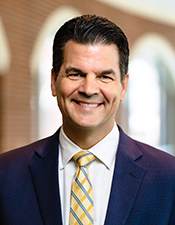Date of Award
12-2016
Document Type
Thesis
College
College of Arts and Sciences
Degree Program
History
Degree Name
Master of Arts
Thesis Advisor
Dr. Gregory Bell
Committee Member
Dr. Edward Lee
Committee Member
Dr. Peter Judge
Keywords
temple, priest, early Christianity, sociology, church history, cult
Committee Member
Dr. Robert McEachnie
Abstract
I will argue that early Christianity more or less comprehensively envisioned itself, across varying traditions, to be a human-temple community, or a series of such communities; and that this word picture, this symbol, to a certain extent ordered their social life and aspirations. I propose three interlocking aspects to this priestly sociology. First, there is the element of unity. From the beginning, the temple model promoted unity, and it became particularly important later among very disparate groups of people within the church Second, the cultic motif generated a fresh kind of priestly ethics appropriate to the self-understanding of the movement. Third, for early Christians the temple framework, fleshing out perception into praxis, both foreshadowed and actualized the future New Creation—in which all such apocalyptically-minded Christians believed. This thesis examines the first 100 years of Christianity in order to observe how and why this group perceived itself as a human temple and how this self-perception played out in the wider Jewish and Greco-Roman worlds.
Recommended Citation
Higdon, Matthew, "The Temple Character of Early Christianity" (2016). Graduate Theses. 46.
https://digitalcommons.winthrop.edu/graduatetheses/46

